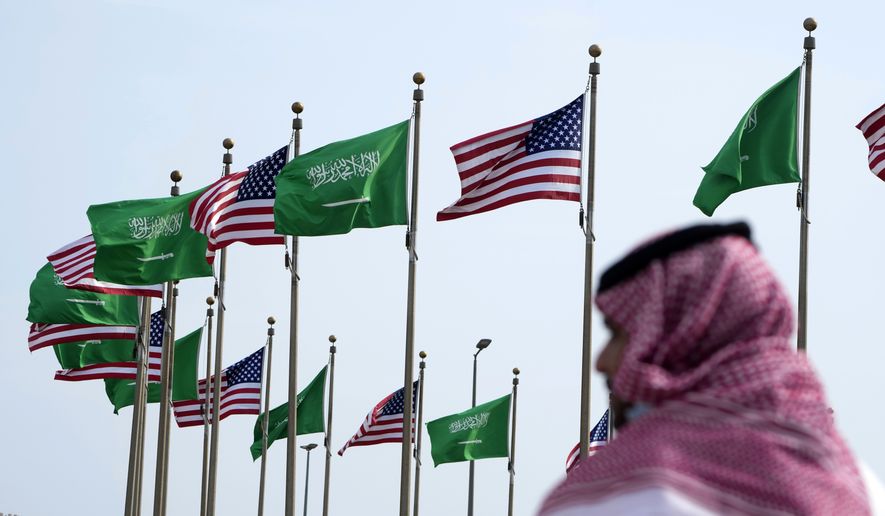White House national security adviser Jake Sullivan has lowered expectations that President Biden will leave Saudi Arabia with a deal to increase oil production, saying such an agreement could take weeks.
Speaking Friday with reporters aboard Air Force One as Mr. Biden headed to the Saudi kingdom, Mr. Sullivan conceded that an immediate oil deal is unlikely.
“I don’t think you should expect a particular announcement here bilaterally because we believe any further action taken to ensure there is sufficient energy to protect the health of the global economy will be done in the context of OPEC+,” Mr. Sullivan said.
Mr. Sullivan said the progress from Mr. Biden’s meeting with the Saudi rulers “will be measured over the course of weeks.”
“That is our plan going in, that is our plan on this plane, that will be our plan coming out,” he said of the meeting.
While in Saudi Arabia, Mr. Biden is holding a bilateral meeting with Saudi King Salman and Crown Prince Mohammed bin Salman, who is the kingdom’s de facto ruler. He will press the Saudi leaders to pump new crude supplies into the world oil market to help curb soaring prices that sent gas prices north of $5 per gallon in the U.S.
However, it is unclear whether Saudi Arabia can increase production quickly enough to curb rising gas prices, despite holding the world’s largest oil reserves.
SEE ALSO: Biden, Saudi crown prince greet each other with a fist bump
Although Mr. Biden has insisted the meeting with Saudi leaders is about enhancing security and stability in the Middle East, Mr. Sullivan acknowledged the president will push to ramp up oil production.
“We will discuss energy security at this meeting,” Mr. Sullivan said. “The president discusses it when he’s in Europe, when he’s in Asia and he certainly will be discussing it here in the Middle East and here in Saudi Arabia.”
OPEC+ last month announced that members of the oil cartel agreed to a larger-than-expected hike in production. The cartel agreed to produce 648,000 barrels a day in July and August, rather than the 400,000 barrels a day that members initially planned to produce.
But they have also failed to meet that quota this month, raising questions about whether OPEC+ has the oil capacity to meet demand.
• Jeff Mordock can be reached at jmordock@washingtontimes.com.




Please read our comment policy before commenting.